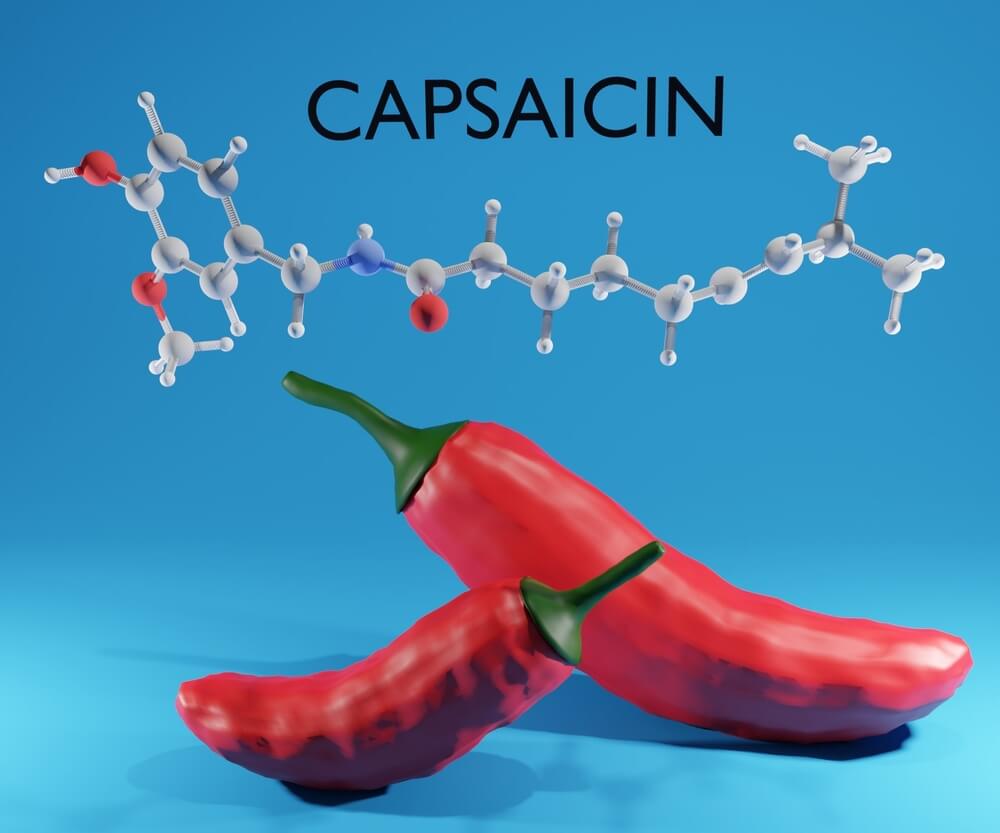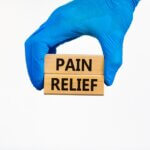Table of Contents
The natural treatment for neuropathy may include several things. Some of the best-known natural cures for neuropathy are Capsaicin, Vitamin D, Acupuncture, and Cayenne pepper. Others are more experimental, but all promise relief. The following list is not exhaustive, but it should give you a good start. Read on to find out more. Neuropathy is a condition where the nerves are damaged. This causes problems with balance, pain, and sensation.
Capsaicin

In the 1980s, researchers found that capsaicin reduces the activity of sensory nerve fibers, turning off the sensation of aches and pains for weeks or even months. That's because capsaicin depletes the substance P, a neuropeptide in the nerve fibers, causing inflammation and irritation. Without substance P, the nerves are not able to transmit pain signals to the brain.
There are a variety of creams and ointments containing the hot pepper extract. Capsaicin has shown moderate success in treating neuropathic pain. In fact, some patients have even reported relief from itchiness. The creams are affordable, non-invasive, and can be used on patients at home. Patients can self-modulate the duration and frequency of use.
A study in 2010 found that a high concentration of capsaicin provided moderate to substantial pain relief in HIV-neuropathy patients. The researchers also found that the patch improved sleep quality and reduced fatigue in patients with neuropathy caused by AIDS. They also found that capsaicin improved depression, sleep quality, and quality of life. These results have potential as a natural treatment for neuropathy.
In Africa, capsaicin is made into a salve for pain. The capsaicin in this pepper has anti-inflammatory, analgesic, and digestive benefits. Some studies suggest that capsaicin reduces the risk of irregular heart rhythms. However, the efficacy of home preparations for pain relieving is unknown. The capsaicin content in cayenne pepper can be volatile and aerosolized. This can cause transient respiratory discomfort and irritability. Thus, home preparations of capsaicin should be avoided.
Acupuncture
Acupuncture for neuropathy is an effective natural treatment that can help relieve the pain and symptoms of this condition. It helps improve blood circulation to the nerves by stimulating the body's energy systems. In addition, it can help improve the condition's quality of life. Acupuncture is an effective method for treating neuropathy, and the side effects are minimal. Here are just some of the benefits of acupuncture for neuropathy.
Acupuncture works by stimulating pressure points to stimulate the nervous system. It also increases blood flow to the damaged nerves, which may help improve pain and emotional well-being. Many neuropathy patients have reported improvement in their symptoms after beginning acupuncture treatment. In addition to the pain relief, acupuncture also helps balance the body's energy, leading to a feeling of wellness and emotional well-being.
While many natural remedies can be very effective, it's important to track the results carefully. Some may work more quickly than others, so it's important to find out which treatments are working for you. As with any treatment, you should be patient as you may have to wait a few days before you notice any results. You may need to repeat treatment if you don't see any progress. If you experience abnormal symptoms, consult your doctor as soon as possible.
While traditional methods of treatment can be effective, they often have negative side effects. The best treatment for neuropathy should be individualized to treat your specific needs. It should be tailored to your needs, but you should be sure to discuss the benefits and risks of each treatment option with your healthcare provider. It's important to remember that you may have to try more than one treatment before you find the one that works best for you. Acupuncture for neuropathy natural treatment
Cayenne pepper

A common home remedy for neuropathy, cayenne pepper has been shown to reduce the pain signals that are triggered by nerve damage. You can either take cayenne pepper supplements or apply it as a topical ointment. Another method involves using high-dose capsaicin patches to target the area of pain. Although these methods may seem like extreme measures, they are proven to have a positive effect on pain.
Capsaicin, the ingredient responsible for the pepper's spicy taste, is also a natural pain reliever and can be applied as a topical cream or lotion. It works by sending signals throughout the body to lessen pain. However, it is not recommended for people who are sensitive to heat. Capsaicin can also cause respiratory discomfort and burning, so cayenne should be avoided unless your doctor prescribes it.
Despite its hotness, cayenne pepper has been used as a natural remedy for pain for thousands of years by Native Americans. Capsaicin is the compound that makes cayenne pepper so hot, and is also helpful for digestion, circulation, and improving appetite. Although it's still too hot to eat raw, cayenne pepper is also a great way to reduce the pain associated with peripheral neuropathy. You can apply cayenne pepper in capsule form or eat it raw.
Aromatherapy is another natural method to reduce pain caused by neuropathy. Using essential oils can help ease symptoms. Make sure to consult a qualified herbalist, aromatherapist, or doctor before using any essential oils. Certain essential oils may interfere with certain medications and should only be used under the guidance of a licensed medical professional. You may also want to consult an aromatherapist if you have a history of medical conditions.
Vitamin D
A vitamin called Vitamin D can help reduce the symptoms of peripheral neuropathy, especially if you're deficient in the nutrient. The human body produces Vitamin D in response to sunlight, and this substance may also prevent nerve pain. Researchers from the University of Sheffield studied people with diabetic neuropathy, and found that those with lower vitamin D levels reported higher pain. Although Vitamin D can't be obtained from food alone, taking a supplement can improve your symptoms.
Deficient levels of Vitamin D are linked with both pain and inactivity. Diabetic patients with low levels of vitamin D have lower cold detection. However, vitamin D supplements can reduce symptoms and help patients live a longer, healthier life. The next step is to study the benefits of Vitamin D as a natural treatment for neuropathy. But if you don't have enough Vitamin D, a doctor may recommend a vitamin D supplement for you.
In addition to influencing pain sensitization, Vitamin D can also affect the expression of specific genes. For example, it may affect the expression of the vitamin D receptor and sodium channel. However, more studies are needed to confirm this connection. For now, vitamin D supplements are an excellent natural treatment for neuropathy. The benefits of vitamin D cannot be overstated. If you want to feel better, start consuming more vitamin D!
Exercise

Evidence suggests that exercise reduces neuropathic nociception in people with neuropathic pain. In preclinical studies, exercise was effective in reducing neuropathic pain by reducing the sensitivity of sensory receptors to acetone, heat, and mechanical stimuli. However, some limitations of this research remain. The limited number of randomized controlled trials and the limited sample size may make these conclusions premature. Further studies are needed to determine how effective exercise is in treating neuropathic pain in human patients.
To rule out any underlying medical conditions, doctors first determine the cause of the neuropathy. Blood work may reveal vitamin and mineral imbalances, thyroid problems, and toxic substances. They may also order imaging tests to look for tumors and pinched nerves. In severe cases, genetic testing may be needed. In addition, exercise can help manage diabetes and ease neuropathy symptoms. Listed below are the benefits of exercise as a natural treatment for neuropathy.
Exercise for neuropathy is not for everyone, and for many people, it is intolerable. However, with the right combination of medications, neuropathy sufferers can effectively manage symptoms and improve their glucose levels. For some people, exercise may be too painful or intolerable, but nonweight-bearing exercises are also beneficial. Try swimming, yoga, and other non-weight-bearing exercises. These exercises are gentler, more gentle, and are not stressful.
Homeopathy
If you're looking for an effective treatment for neuropathy, homeopathic remedies may be an excellent option. While conventional methods are very aggressive and prescription drugs aren't effective for everyone, homeopathy is a natural treatment that can have the same positive results without side effects. As with all natural therapies, however, it's important to consult a doctor to make sure that you don't have another underlying condition that might be causing your neuropathy.
Many homeopathic medicines are known to be effective in treating various types of neuropathy, including diabetic neuropathy, peripheral vascular disease, and peripheral ganglion oedema. Homeopathic medicines are based on the characteristics of the individual patient and the symptoms they're producing. The results of these studies are similar to those of conventional treatments, reducing the need for conventional pain killers. However, physicians aren't familiar with homeopathic research and therefore lack knowledge about the benefits of homeopathy.
Among the homeopathic remedies for neuropathy, Causticum is a good option for those experiencing painful and numb limbs. Similarly, Plumbum Met is a good choice for those who are suffering from numbness or paralysis in their limbs. Conium is an ideal choice for peripheral neuropathy because it helps to reduce the symptoms associated with the disease. The remedy is especially effective for people who are elderly and have no other symptoms of this condition.




Comments
Loading…